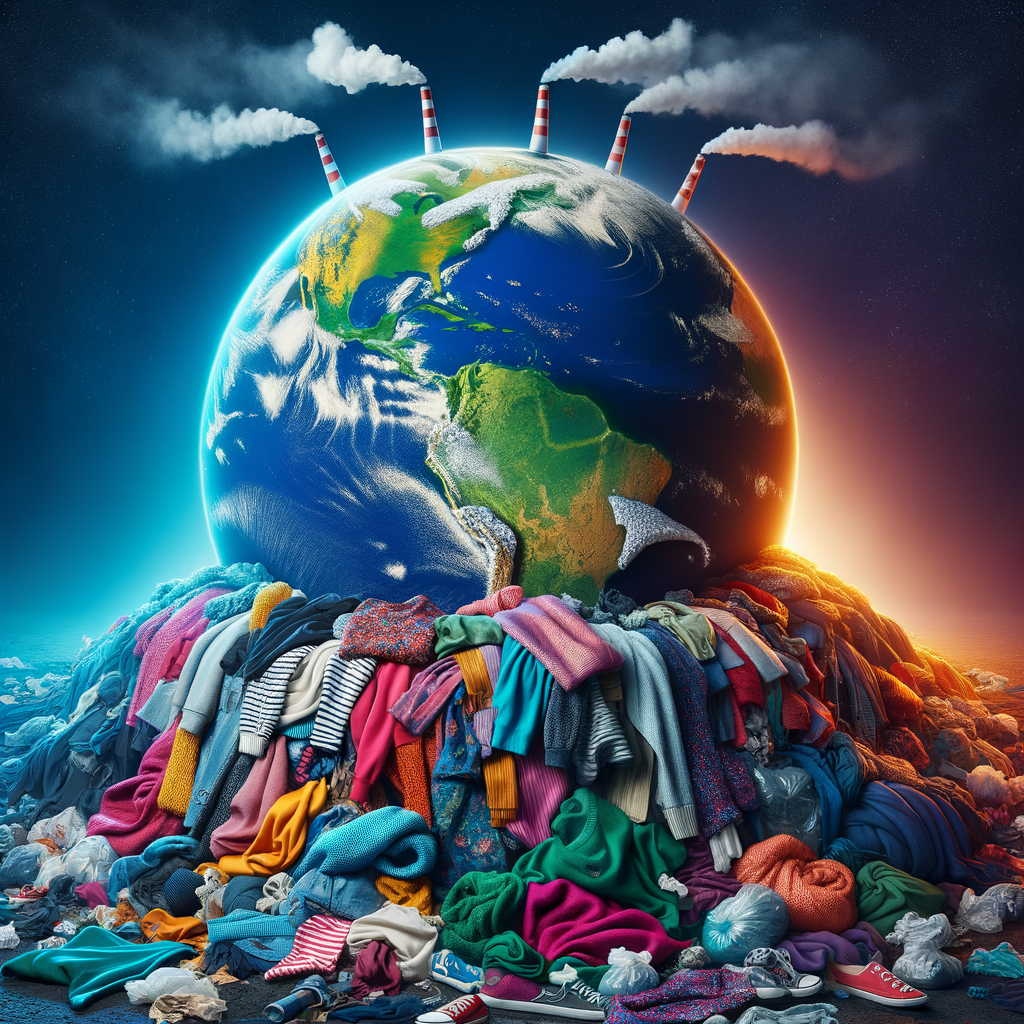Physical Address
304 North Cardinal St.
Dorchester Center, MA 02124
Physical Address
304 North Cardinal St.
Dorchester Center, MA 02124

Fast fashion – a term that has become increasingly prevalent in our modern lexicon. It refers to the rapid turnover of trendy, inexpensive clothing produced by mass-market retailers. This phenomenon has revolutionised the fashion industry, making it possible for consumers to purchase new styles at an unprecedented rate. However, as we delve deeper into this industry trend, we uncover a multitude of environmental and social impacts that are significantly concerning.
One of the most significant repercussions of fast fashion is its detrimental effect on our environment. The fashion industry is one of the largest polluters globally, second only to oil. This is largely due to the production processes involved in creating these fashionable items.
Cotton, a primary ingredient in many fast-fashion garments, requires vast amounts of water and pesticides for cultivation. To put this into perspective, approximately 20,000 litres of water are required to produce just one kilogram of cotton – enough for a single t-shirt and pair of jeans.
Furthermore, synthetic fibres such as polyester and nylon – which are commonly used in fast-fashion items – are petroleum products. Their production emits harmful greenhouse gases and contributes significantly to global warming. Additionally, these materials are non-biodegradable; they can take hundreds of years to decompose in landfill sites.
Alongside environmental concerns, the fast-fashion industry also raises serious social issues. Many fast-fashion brands outsource their manufacturing processes to countries where labour costs are low. This often leads to exploitation as workers are subjected to poor working conditions and inadequate wages.
In 2013, the Rana Plaza disaster in Bangladesh brought global attention to this issue when over 1,100 garment workers lost their lives after the factory building collapsed due to structural failures. This tragedy highlighted the dangerous working conditions and lack of safety standards in many garment factories.
The fast-fashion model encourages a ‘wear it once’ mentality, with consumers regularly discarding garments after only a few wears. This results in enormous amounts of waste, much of which ends up in landfills. According to the United Nations Environment Programme (UNEP), the fashion industry produces 20% of global wastewater and 10% of global carbon emissions – more than all international flights and maritime shipping combined.
As consumers, we play a significant role in perpetuating the fast-fashion cycle. The lure of cheap, trendy clothing is often irresistible, leading us to make impulsive purchases that we may not necessarily need or wear for long. However, by making more conscious choices about our consumption habits, we can help mitigate some of these impacts.
Opting for quality over quantity, choosing sustainable brands, recycling or donating unwanted clothes instead of throwing them away are all ways we can contribute towards a more sustainable fashion industry.
In response to growing awareness about these issues, there has been a gradual shift towards more sustainable practices within the fashion industry. Many brands are now prioritising ethical manufacturing processes and using environmentally friendly materials in their products.
Sustainable fashion aims to reduce waste and environmental impact while ensuring fair treatment for all workers involved in the production process. While this movement is still in its infancy stage compared to fast fashion’s dominance, it represents a positive step forward towards creating a more responsible and ethical fashion industry.
In essence, while fast fashion offers us an array of affordable and trendy clothing options, it comes at a significant cost to our environment and society. As awareness grows and the demand for sustainable alternatives increases, we can hope for a future where fashion is produced and consumed in a manner that respects both our planet and its inhabitants.